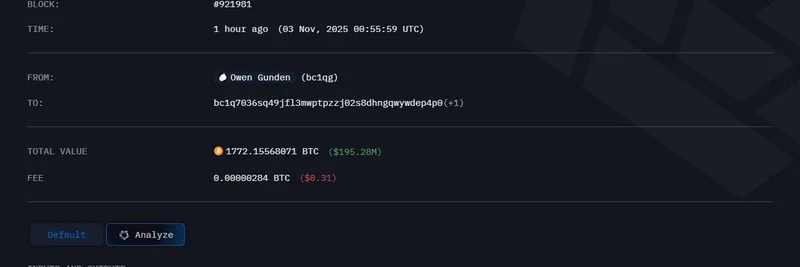In the fast-evolving world of tech and crypto, a recent tweet from developer and content creator ThePrimeagen has sparked intriguing discussions about the future of innovation. He predicts that within the next three years, we'll witness the emergence of "anti-Silicon Valley companies" – ones that prioritize users over profits from AI and data sales. As someone who's navigated the intersections of traditional finance media at CoinDesk and now dives deep into meme token culture here at Meme Insider, I see this as a potential game-changer for blockchain enthusiasts and meme coin creators.
ThePrimeagen's post, shared on X (formerly Twitter), reads: "I am completely convinced that in the next 3 years we will see anti-silicon valley companies. Ones who's sole proposition is user focused non ai data selling versions i'll be personally I'll be researching one this week." It's a bold statement against the current tech paradigm, where giants like Google and Meta harvest user data to fuel AI models and ad revenues. Instead, these new entities would emphasize privacy, genuine utility, and community-driven features – sounds a lot like the ethos behind many successful meme tokens, doesn't it?
For those new to the term, "Silicon Valley companies" typically refer to the venture-backed tech behemoths in California that dominate global digital services. They're known for rapid scaling, heavy AI integration, and monetizing user data. Anti-Silicon Valley alternatives, as ThePrimeagen envisions, would flip the script by avoiding AI hype and data exploitation, focusing instead on sustainable, user-centric products. This resonates deeply with blockchain's core principles, where decentralization empowers individuals rather than central authorities.
In the meme token space, we've already seen glimmers of this anti-establishment vibe. Tokens like Dogecoin or newer entrants built on Solana and Ethereum often start as community jokes but evolve into robust ecosystems with real utility, such as decentralized finance (DeFi) tools or NFT integrations. Unlike Big Tech's data-grabbing apps, meme tokens thrive on transparency via blockchain ledgers, where every transaction is verifiable and users truly own their assets. If anti-Silicon Valley companies gain traction, they could inspire more meme projects to incorporate privacy-focused tech, like zero-knowledge proofs – a cryptographic method that allows verification without revealing underlying data.
Replies to ThePrimeagen's tweet highlight growing sentiment. One user joked about "organic, hand-crafted code" free from AI, echoing calls for authentic development. Another mentioned air-gapped devices – hardware isolated from networks to prevent data leaks – which could pair well with offline wallet solutions in crypto. Even references to existing privacy champs like Kagi (a search engine) and Tuta (email service) show that user-first alternatives are already budding outside the Valley's shadow.
For blockchain practitioners, this trend could mean exciting opportunities. Imagine meme tokens powering apps that let users control their data, perhaps through decentralized identities (DIDs) or token-gated communities. As AI backlash grows – think recent concerns over biased algorithms and privacy invasions – meme creators might position their projects as the fun, rebellious antidote. At Meme Insider, we're all about equipping you with knowledge to navigate this: check our meme token database for projects emphasizing user sovereignty.
ThePrimeagen plans to research such a company this week, and I'll be watching closely. If his prediction holds, it could accelerate the shift toward decentralized tech, making meme tokens not just viral sensations but pillars of a more equitable digital economy. What do you think – ready to ditch data-selling apps for blockchain-backed alternatives? Drop your thoughts in the comments below, and stay tuned to Meme Insider for the latest on how these trends unfold in the crypto world.


